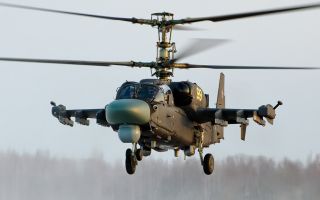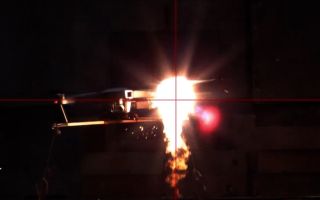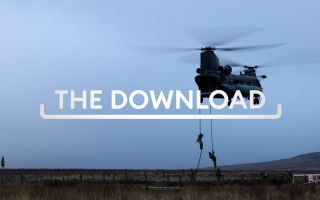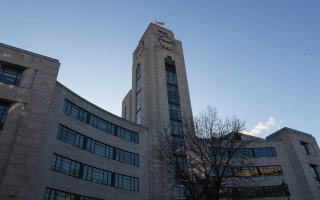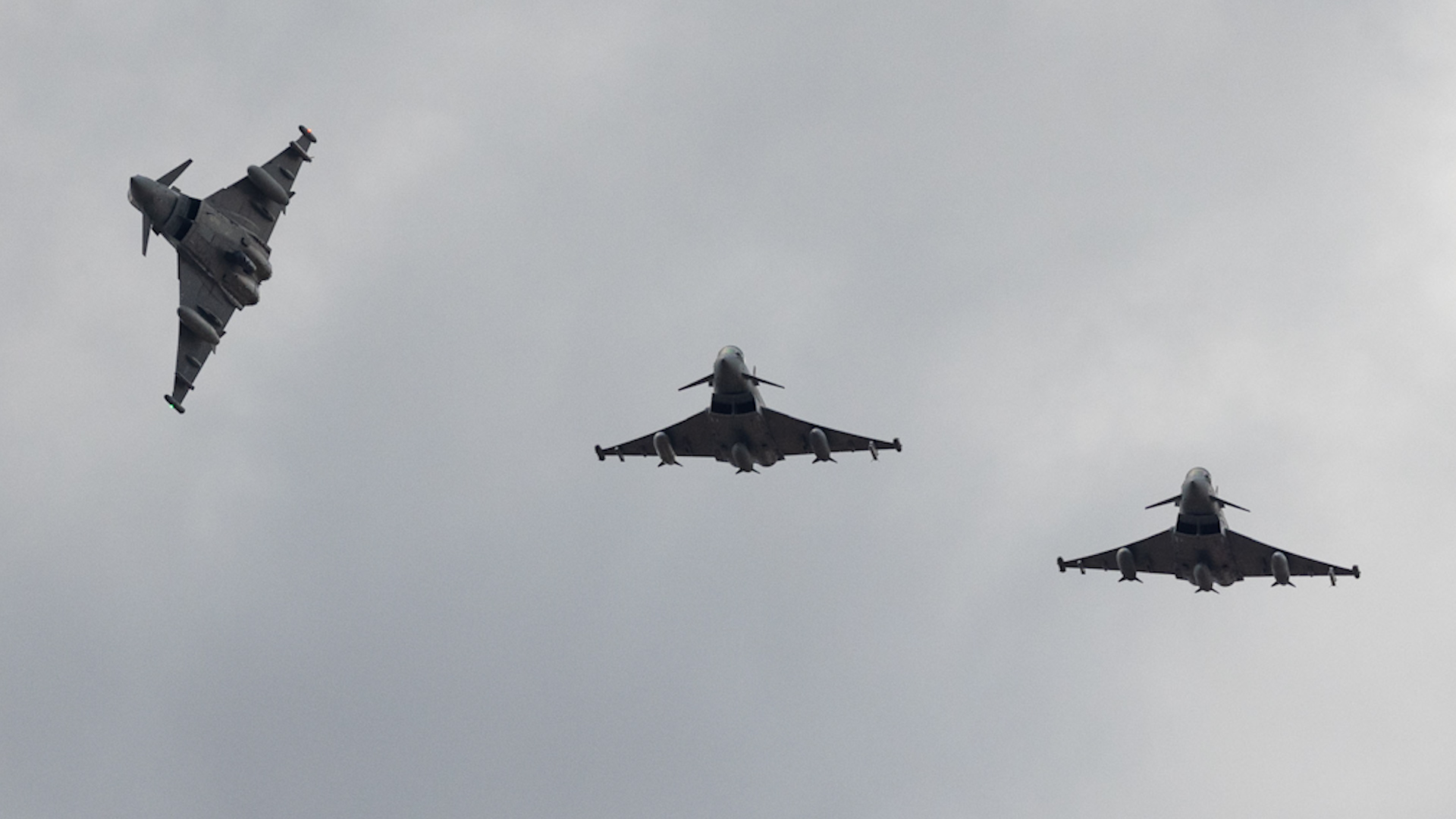
Royal Air Force Typhoons moved from Romania to help shore up defence of Israel

RAF jets were pulled away from protecting Nato from Vladimir Putin's Russia to bolster efforts to defend Israel.
Six RAF Typhoons had been deployed on Nato's air policing mission in Romania earlier this month, flying alongside their Romanian counterparts, but the aircraft were redeployed to take part in the operation to defend against Tehran's drone and missile barrage.
They were involved in shooting down a number of kamikaze drones that had been launched by Iran towards Israel.
The Prime Minister's official spokesman said the RAF sent Typhoons and tanker aircraft to the region to "bolster our existing operation to combat Daesh in Iraq and Syria under Operation Shader" – the UK's effort to counter the so-called Islamic State in the Middle East.
"Those jets shot down a number of one-way Iranian attack drones over Iraq and Syria," the spokesman said.
The British jets were deployed to "backfill" in the counter-Daesh role, freeing up US planes to protect Israel.
But the Government agreed their mission could also include shooting down drones targeting Israel that flew through the area of operations.
On the reinforcements sent from Romania, the spokesman said: "We already have a significant presence in the region. But as a prudent measure, we temporarily moved a number of aircraft from Romania to bolster our existing footprint.
"Allied air forces continue to patrol Nato airspace to ensure it is protected from all threats and we have coordinated with Nato and our allies… to ensure there is no gap in Romania."
Defence Secretary Grant Shapps has argued that 2024 must be an "inflexion point" in how the UK responds to international threats.
"The era of the peace dividend is over," he has warned, highlighting Russia, China, Iran and North Korea as potential flashpoints over the next five years.
Other Nato allies covered for the RAF in eastern Europe, but the decision has once again put the UK's defence budget under the spotlight with resources stretched around the world's hotspots.
Rishi Sunak has committed to increase defence spending to 2.5% of gross domestic product – a measure of the size of the economy – when conditions allow.
But the Prime Minister is under pressure from the military and senior Conservatives to go further and faster due to the current level of global insecurity.
Former defence secretary Ben Wallace told the PA news agency: "The absurd line deployed by both political parties that we shall only invest in defence 'when economic conditions allow' have been exposed as a political excuse.
"We need to invest as the threat determines. Without such investment our security will be at risk and our forces will be stretched."

